As the controversies revolving around radio and the “connected car” swirled around us at CES and at the North American International Show in Detroit, a number of people made the same observation:
Sure, Apple CarPlay, Android Auto, and autonomous cars may be the future, but for radio, doesn’t it still boil down to the old saying, “content is king?”
And of course, that point of view has a great deal of validity. Apps, placement in the dashboard ecosystem, NextRadio, HD Radio, and easy-to-find buttons and knobs for AM/FM radio mean nothing if the product is substandard, irrelevant, or no better (or even worse) than consumers can get elsewhere. If radio doesn’t create programming that motivates the consumer to tune in and engage, all the technology in Detroit or Cupertino doesn’t mean a lot.
As we have discussed most recently in this space, “content is (still) king,” but “distribution is (indeed) queen.” If consumers can’t find your content or it’s a layer or two away from their fingertips, then your brand or your medium has issues.
But somehow we keep breezing past the “king” part. How many AM/FM radio stations are, in fact, keeping up with their digital counterparts for news, information, music, entertainment, the local perspective, and a great user experience?
How many are providing the surprise and stimulation that keep consumers coming back for more? And we’re not just talking what’s coming out of the speakers or earbuds, but the total package they present.
It wasn’t that long ago when it took an act of Congress for many stations to alter, much less do something interesting with their websites. That’s why so many radio employees gave up on their sites, and focused instead on social media. Facebook, Twitter, Instagram, and others are easy to use, plus they provide the added bonus of instant feedback. If a status update or photo or meme hits home, the results are virtually instantaneous, delivering feedback much faster and more satisfying than website page views in Google Analytics.
But now that so many station websites are easier to modify, using interfaces like WordPress, it is quick and simple to post pretty much anything. Our Digital Dot Connector, Seth Resler, is a proponent of cool stuff on your website that is timely and compelling as part of the content marketing model. Done right, the goal is to build site traffic, as well as have web visitors complete various tasks (sign up for the database, enter a contest, etc.).
Sadly, few stations make it a point to apply strategy to their websites and even their social spaces. And that’s part of the reason why other brands always seem to have the upper hand – even when it comes to topics that a radio station should be famous for.
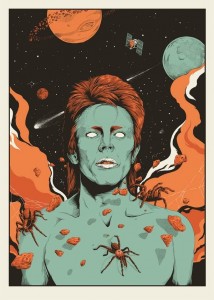 A case in point occurred last week when it was announced that David Bowie had died. For many reasons, this put stations in a difficult position. First, the sad news broke in the middle of the night, and that’s never a good thing for most music stations that are mired in voicetracking (or just seguing songs) during the wee hours.
A case in point occurred last week when it was announced that David Bowie had died. For many reasons, this put stations in a difficult position. First, the sad news broke in the middle of the night, and that’s never a good thing for most music stations that are mired in voicetracking (or just seguing songs) during the wee hours.
Second, many stations simply have nothing prepared for these events (even though Bowie promises to be just the beginning of a string of Classic Rock passings). So most ended up playing a lot of his songs, perhaps intermixed with Bowie actualities culled from station interviews or syndicated programming.
And third, there is typically no attendant digital strategy to make the death of an iconic rock star a moment in time that people will remember for years. Yes, many stations immediately moved to the social space (generating more web traffic for Facebook), and some actually opened the phones to let their listeners talk about Bowie memories.
But in most cases, there was not a content marketing strategy in place that could have tied the event together with the air, the web, and social media channels.
Enter BuzzFeed. One of the reasons why they attract 60, 70, or 80 million unique visitors each month is their commitment to creating content that ties into the real-time zeitgeist. And their clever content often provides a sense of surprise, sarcasm, or quirkiness to topics that are hot, interesting, and timely.
For Bowie, they came up with some cool content, including a look at many different artists’ tributes. These are fascinating, graphically striking, and easy to share. And they help put a complicated artist like David Bowie into a fascinating and very different dimension – through the eyes of visual artists who lovingly created something special when they heard his music. The drawing by Joe Wilson (above) is one of many posted by BuzzFeed that was part of this Bowie feature.
But not everything on BuzzFeed is created by them. They curate some amazing things, too, including this simple chronological gimmick, allowing you to compare yourself with what the artist sometimes known as Ziggy Stardust was doing at your age.
Created by two Norwegian developers, Joakim Tønnesen and Duy Nguyen, their site makes use of music videos, photos, and factoids that illustrate the amazing life that David Bowie led.
This simple web gadget is captivating, And it’s stimulating to a variety of age groups to find out what Bowie was up to at age 6 or 66. In many ways, BuzzFeed has redefined the idea of music discovery. Consumers may not learn about new artists, but they are amazed and entertained by BuzzFeed content that tells them things about icons like David Bowie that they never knew.
Many of these BuzzFeed features take the music that radio plays and creatively animates and expands it into a shareable conversation. In much the same we remember passionately discussing and debating music back in high school or in the dorm, these clever features expand the brilliance of an artist like Bowie, making us appreciate him even more.
Classic Rock is especially conducive to BuzzFeed treatment because the music and the artists who made it are iconic and respected. And it begs the question of whether stations (or companies with numerous stations in the format) couldn’t benefit from a small team of ninja content creators, ready and prepped to create these web gems based on the music and artists that have stood the test of time.
Here’s another simple BuzzFeed trick that any Classic Rock station could pull off:
This is Wikipedia 101, but it works. It drives web traffic, it adds another interesting dimension to the music, and it’s more than just playing “Sweet Home Alabama” next to “Sweet Emotion.”
But it’s not just a Classic Rock thing. When Adele released “Hello” and subsequently, her album 25, every CHR, AC, and Hot AC played it…a lot. But what made your station’s airplay special, different, engaging, or buzzworthy?
BuzzFeed created (or aggregated) a lot of captivating Adele gimmicks and features, from “If Adele Quotes Were Motivational Posters” to “We’ll Give You Life Advice Based On Your Favourite Song From Adele’s ’25.’”
But a no-brainer that took precious little time to conceive, create, build, and post was this simple quiz that asks you to connect Adele songs to her albums:
Anyone can do this, but few actually follow Lee Abrams’ advice to AFDI (actually f*@#ing do it). The web is an incredible place where radio could be doing far more interesting connections to the music and the personalities behind it. And the addition of visuals – photos and videos – help make these features even easier to enjoy and share. But it takes rethinking the standard treatment for everything (new song or album release, concert coming to town, local election, or even a Republican Presidential Debate).
In fact, the hometown treatment of these events might be the secret of truly connecting with a local audience, motivating viral sharing, building page views and uniques, as well as affecting behavior (database signups, coupon downloading, etc.)
Slamming a song into hot rotation, asking a question on Facebook, or featuring a “win it before you can buy it” just isn’t getting it done anymore. So maybe we’re back to Apple and “Think Different,” because that’s what it will require to get beyond going “wall to wall Bowie” the day he died, and creating content that delights, surprises, and stimulates sharing and buzz.
It’s time for radio to stop saying that “content is king” or that “radio is the original social media” and to instead start putting into action the four letters that can truly make these axioms come to life and be credible:
AFDI
Note: This post was written just a couple hours before the news of Glenn Frey’s death was announced. Many of the same things we observed about the David Bowie story apply here. The Frey news inconveniently occurred on a holiday – MLK Day – when many programmers and DJs had the day off. Some Classic Rock stations failed to even play an Eagles song for hours. BTW BuzzFeed had a tasteful news story posted yesterday afternoon, but nothing else– yet.
- What To Do If Your Radio Station Goes Through A Midlife Crisis - April 25, 2025
- A 2020 Lesson?It Could All Be Gone In A Flash - April 24, 2025
- How AI Can Give Radio Personalities More…PERSONALITY - April 23, 2025



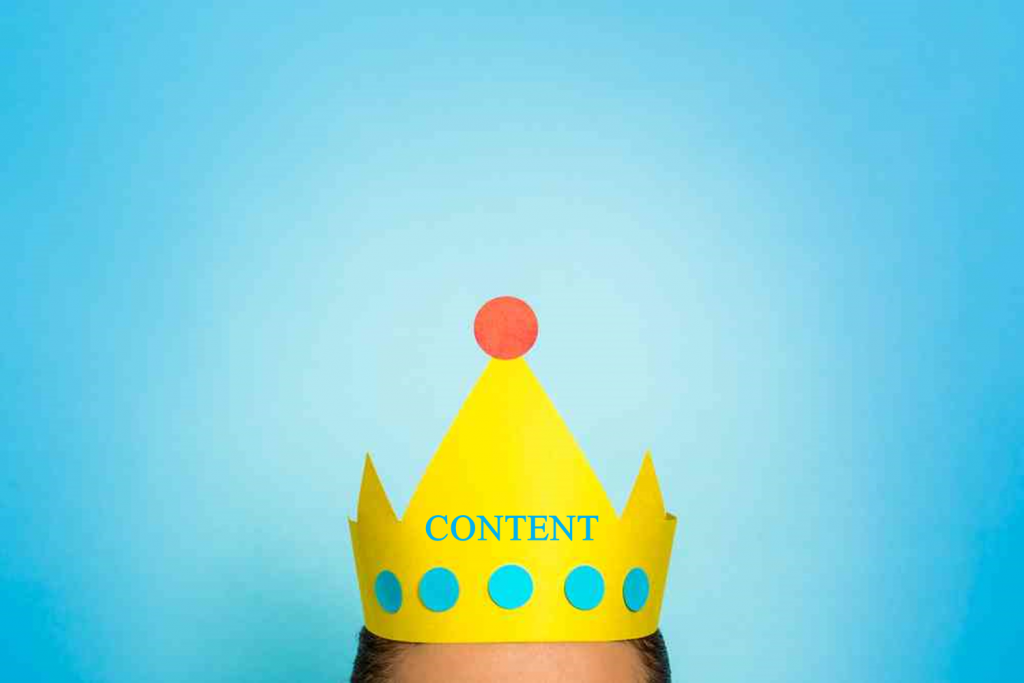
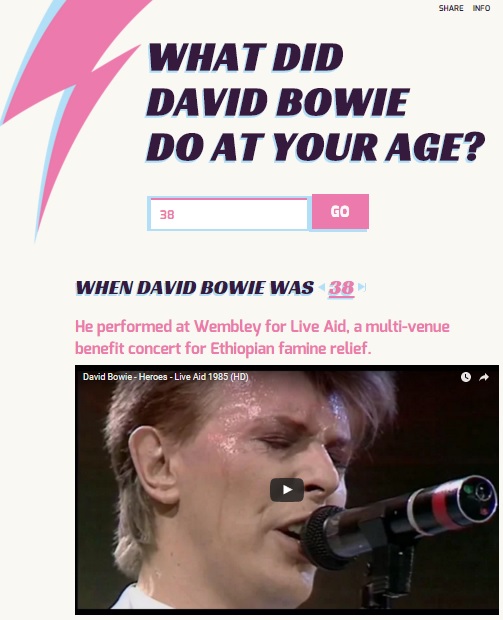
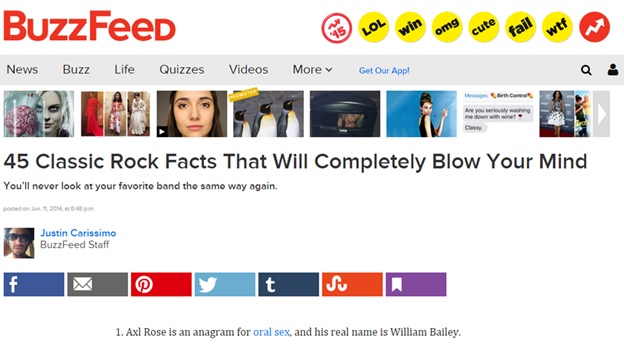
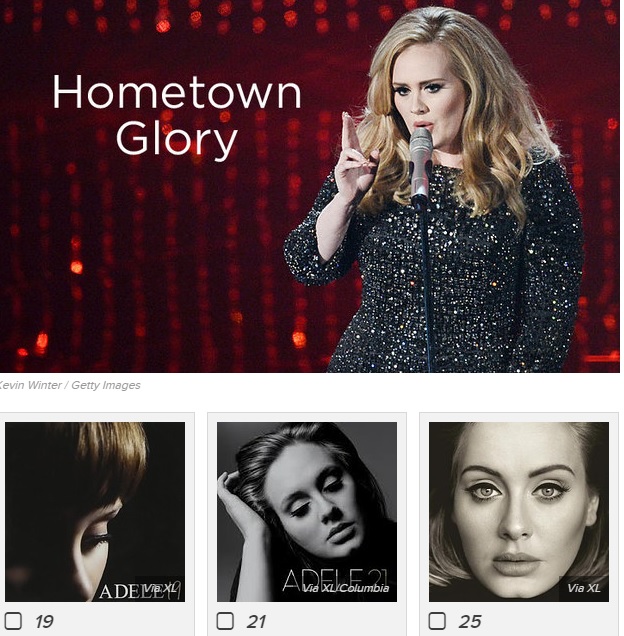

Detroit area radio with the death of Bowie. Little to nothing in shifting programming to celebrate his life and decades of music. That was handled very nicely by two public radio stations–the free form WCBN in Ann Arbor and WDET in Detroit. And, of course, Sirius XM, most notably (though there must have been other channels I’m omitting) The Loft and The Underground Garage. For commercial radio in the Motor City it was missing the boat as usual, for a guy who wrote Panic In Detroit.
Alan, public radio often does a more comprehensive, thoughtful job handling these “moments.” Although part of the challenge to all radio stations is the “breaking” moment, which continues to be challenged by music stars (from Whitney Houston to David Bowie to Glenn Frey) dropping dead at times when there’s “no one home.”
Driving to work on Tuesday morning, I did tune into WCSX-FM in Detroit and heard 20 minutes of interviews and music from Frey and the Eagles. It sounded like something put together from a national source and not done locally. While it wasn’t as ‘live and local’ as I would have wanted (didn’t hear a local DJ during the time I listened) and it certainly wasn’t as cool as the Gary Gaff piece in Billboard or the Bob Seger interview in the Detroit Free Press, both of which highlighted Frey’s early years and life in Michigan and other local ties, it was a far better response than what the station provided in the wake of Bowie’s departure.
I believe CSX put that together locally. Proud of their efforts.
CSX’ Did a fantastic job with both (Bowie & Frey’s) passing. I was able to listen during different times and they were different interviews, stories, thoughts etc.. From the Full Time jocks to the fill ins.
Hearing them break “Format” and playlists to acknowledge these life changing events means a lot to their audience. Radio is still King but as the blog states, commercial radio sometimes need to be quicker and more thoughtful to engage their audience on all of the media platforms available to them. Engage is the key word here. Its so much more than playing songs nowadays. Its nice for the listener when we can get more than a simple artist factoid (Shared experiences=more listening loyalty) especially when it involves the death of icons who have played a big part in the playlists of modern day classic rock radio.
Thanks Fred!
These are big moments for local Classic Rock stations, and it’s great how CSX consistently steps up when it counts. Thanks for the comment, Robert.
AFDI to fix the FUBAR. Content, presentation, delivery. Best show wins. I heard at least one pre-programmed playlist that couldn’t even insert Bowie into morning drive. You can make the trains run on time but if nobody’s home, folks tune out. It’s like the audience didn’t say “That’s coming from Satcom 3,” but sensed local connection was missing. Ad agencies, spread sheets and past research aren’t be-all answers. It only takes one to win. Ready, when you are.
Thanks, Fred, Lee and all the Boomers who still care & know how to preserve the planet’s best communication: WAD. aka Wireless Audio Delivery, RADIO! Add connection and stir!
Thanks for the comment, Clark. Much appreciation.
Not Everyone was off yesterday, & we had music & actualities on within minutes of hearing ( and Triple verifying) the news…and posting on our social media sites..and follow up special programming through this weekend.with Bowie we were able to Share concert tickets & memories from a Bowie show posted on fb , & compile and promote a locally produced hour special. We also take advantage of some great content available through Benztown.
Glad to here you guys pulled together strong coverage yesterday, Dave. Our post addresses some of the systemic issues radio has in providing strong real-time coverage for these types of events. Certain stations are prepared. But in many cases, these huge stories take stations by surprise, unequipped to handle these events. Thanks, Dave.
Good point Fred. I’m sure you won’t be surprised to hear me agree with your point, especially that this is going to start to happen more often.
I’m afraid in too many cases, the jocks and programmers at Classic Rock aren’t as in touch with what these passing stars meant to their audience as their audience is. Plus a music academic once told me that “Americans are good at saying who’s great, but they are less good at articulating why they are great.”
As time goes on, it would be a good strategy for every programmer to be in touch with at least one music writer/critic/superfan who they can go to to provide some decent context around the string of hits played as soon after an artist passes on.
Thanks for acknowledging public radio’s better job at this in some cases. (Although I’m sure some of the legendary big market rockers did David proud) I had a Bowie special available for public radio within 12 hours of the overnight death announcement. https://www.prx.org/pieces/169330-ten-from-david-a-david-bowie-appreciation Same with BB King, Levon, Lou Reed and others.
I wouldn’t object to sharing this kind of content or excerpts from it with commercial Classic Rockers if we knew how to connect with them fast when things like this happen. But I think covering this base is something local programmers and morning show people can do it, and be ready for it, with a modicum of planning.
Enjoy your columns.
Paul
https://www.paulingles.com
That is: “But I think covering this base is something local programmers and morning show people can do, and be ready for, with a modicum of planning.”
Paul, thanks for checking in (as I assumed you would). These earth-shaking events in the rock community are in your sweet spot. These are strong suggestions and your offer is appreciated. As you suggest, some stations are on top of these events and do a fantastic job of covering them. But many others are caught off-guard, and are unable to respond with strong in-the-moment programming.
I think “the gods” are also trying to make a point here. It has not escaped me that from Whitney Houston to Clarence Clemons to David Bowie to Glenn Frey, each of these music superstars passed away at times when many stations were voicetracking. If that doesn’t make a statement about how these cost-saving measures are truly costing stations in the credibility department. Thanks again.
If your station was using @SyncBP, anyone with an account could access the programming of the station remotely and insert some music ch-ch-changes in 2 seconds 🙂 oh well, most stations will be hooked up by the end of the year.
Thanks, Robin!
oh your welcome. I just checked and Music Master I guess has a way to do that but we are going to be working with them now, too!
btw, it’s finally raining in Ventura, CA.
Was doing some monitoring when the Frey news broke.
I went to at least a dozen classic rock stations for the next hour—nothing.
Finally, The Spectrum on SiriusXM did a mention.
That was it.
Sad news. And I was especially unhappy to hear Frey referred to as “Eagles guitarist.” Kind of like referring to McCartney as “Beatles’ bassist.” Ugh.
The term “Eagles guitarist.” could have been from people reading the TMZ story (one of the first that broke the news) with the “print” headline
“Glenn Frey — Eagles Guitarist Dead At 67” On the air Glenn Frey of the Eagles or Founder of the Eagles Glenn Frey sounds better.
Funny story my wife had The Sound live stream on at home when Cynthia Fox broke the news & called me at work & we posted on social media & went on air right away here in San Luis Obispo.
Them ankle for the comment and the great story, Kurt.